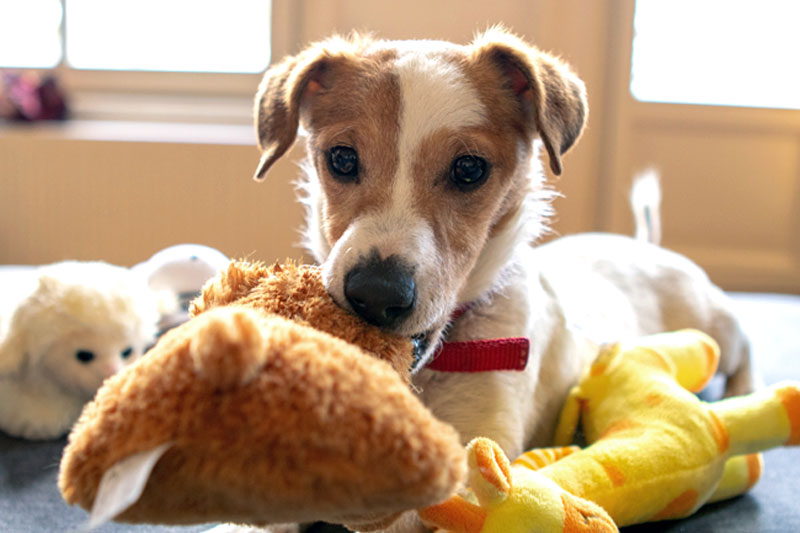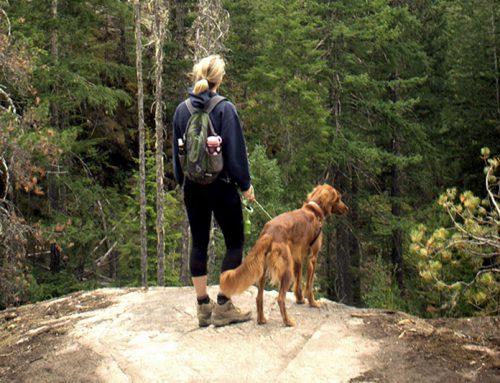It’s best to follow the manufacturers guidelines.
Most pet toys come with care and cleaning instructions and it’s best to follow the manufacturers guidelines. When no instructions are available you’ll need to use good judgement.
Many people are inclined to wash rubber, plastic and nylon toys in a dishwasher, but you should only do this is the manufacturer specifically states that the toy is dishwasher safe. The high water temperature could do serious damage to the structure and release unsafe chemicals from the toy. It’s best to soak and hand wash these toys in a basin with warm water and antibacterial dish soap. Use a toothbrush or scrub brush to clean dirt from grooves and crevices. For really soiled and grimy toys, you can pre-soak in a one part vinegar to two parts water for about 15 minutes. Discard the dirty water and then wash again with soap and water. Thoroughly rinse with clean water.
Rope toys – free from plastic rings, bones or metal of any kind – can be disinfected in a microwave for about 1 minute to kill any living bacteria on the toy. Then you either soak in a basin with 1 part water, 1 part vinegar, rinsing thoroughly or wash in the washing machine with a pet safe detergent. Rope toys are designed to be very strong, so they can withstand the clothes dryer, or they can be air dried in the sun on in a warm place.

Plush toys need to be cleaned more frequently than plastic or rope toys. The best way to clean and sanitize them is by using either a dog-safe laundry detergent or by going the completely natural route and using half water and half white vinegar. You want to wash away the dirt and grime along with bacteria and slobber. Sturdy heavy-duty toys should hold up in a normal washing cycle with cold or warm water. Delicate toys, those with squeakers or plastic parts, orf you’re in doubt and concerned about your dog’s favorite toy, should be washed in a mesh bag on a gentle cycle. Gentle squeeze out any excess water and dry these toys in the machine on a low heat cycle or hang in a warm place or outdoors in the sun.
If possible plan to do your washing on a sunny day so the toys can be placed outdoors to air dry in the sun. Be sure to regularly inspect toys for any missing pieces or ripped stuffing. If repairs are impractical then discard and replace heavily chewed, torn and tattered toys to avoid choking hazards and serious, potentially life-threatening intestinal blockages. Avoid leaving toys outside in the elements: rain and snow can be breeding grounds for mold and mildew and extreme heat can leach dangerous chemicals.





